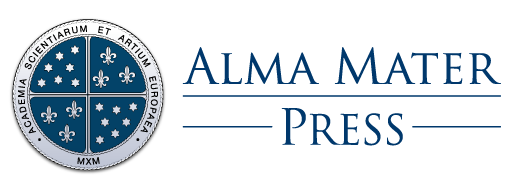Russian Scholars in the Kingdom of Yugoslavia
DOI:
https://doi.org/10.33700/1580-7118.17.1.151-176(2015)Keywords:
Russian emigrants, academic associations, Russian Scholarly Institute, Congress of Russian scholars, Russian academicsAbstract
The October Revolution and the sequence of events triggered by this coup drove crowds of Russians to foreign lands. On arrival in a new environment, many cultured and highly educated people forged contacts and began to establish various organisations and associations. The primary purpose of these associations was to bring together Russian citizens who had found themselves in a new homeland, to provide them with social support, and to foster their national identity. At the same time the activities of many émigré organisations, with their highly skilled and highly educated membership, significantly contributed to the development of disciplines and activities of various local institutions.
The purpose of this text is to present the contribution of Russian emigrants to Yugoslav scholarship. The focus is on various scholarly institutions and associations, which emerged between the arrival of the first large group of Russian emigrants in 1921 and the year 1945, when the activity of the émigré organisations died down.
Downloads
References
Arhiv Republike Slovenije, AS 1931, Republiški sekretariat za notranje zadeve SRS, Beloemigracija v Jugoslaviji 1921–1941, a.e. 1053.
Arhiv Republike Slovenije, AS 1931, Republiški sekretariat za notranje zadeve SRS, Ruske organizacije v SLRS 1921–1941, a.e. 945.
Arhiv Republike Slovenije, AS 1931, Republiški sekretariat za notranje zadeve SRS, Peter Borisov: Iz življenja ruskih emigrantov v Ljubljani, a.e. 945.
BRGLEZ, A., SELJAK, M. (2008): Rusija na Slovenskem – Rossija v Slovenii: ruski profesorji na Univerzi v Ljubljani v letih 1920−1945 – russkie prepodavateli v Ljubljanskom universitete v period s 1920−1945 gg. Ljubljana: Inštitut za civilizacijo in kulturo - ICK.
FIGES, O. (2007): Natašin ples. Kulturna zgodovina Rusije. Studia humanitatis.
Jutro (1928): Kongres ruskih učenjakov v Beogradu, 18. 9. 1929, let. 9, št. 219, str. 4.
MILENKOVIĆ, T., PAVLOVIĆ, M. (2006): Beloemigracija u Jugoslaviji 1918−1941. Knjiga 1, Institut za savremenu istoriju Beograd, Beograd.
SMITH, D. (2012): Former people. The last days of the Russian Empire. Pan Books.
Sokolski glasnik (1933): Otvaranje doma ruske kulture u Beogradu, 23. 4. 1933, let. 4, št. 10, str. 4.
VOJVODIĆ, M. (2011): Srpsko-ruski odnosi od početka XVIII do kraja XX veka: međunarodni naučni skup, 23-25. septembar 2010. Beograd: Srpska akademija nauka i umetnosti.
ZAMU, Univerzitetna matrika zim. sem. 1919/20 - 1924/25, I 1−405.
Zgodovinski arhiv Ljubljana, ZAL, Ljubljana, Cod III, 95.
http://www.guskova.ru/ (zadnji dostop 26. 5. 2015).
http://www.inslav.ru/index.php (zadnji dostop 26. 5. 2015).
http://www.inisbgd.co.rs/celo/timofejev.htm (zadnji dostop 26. 5. 2015).

